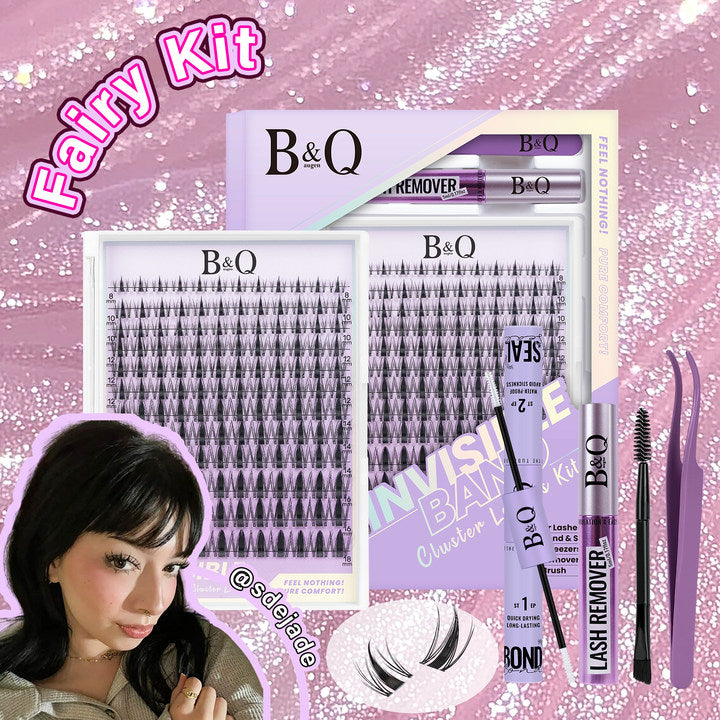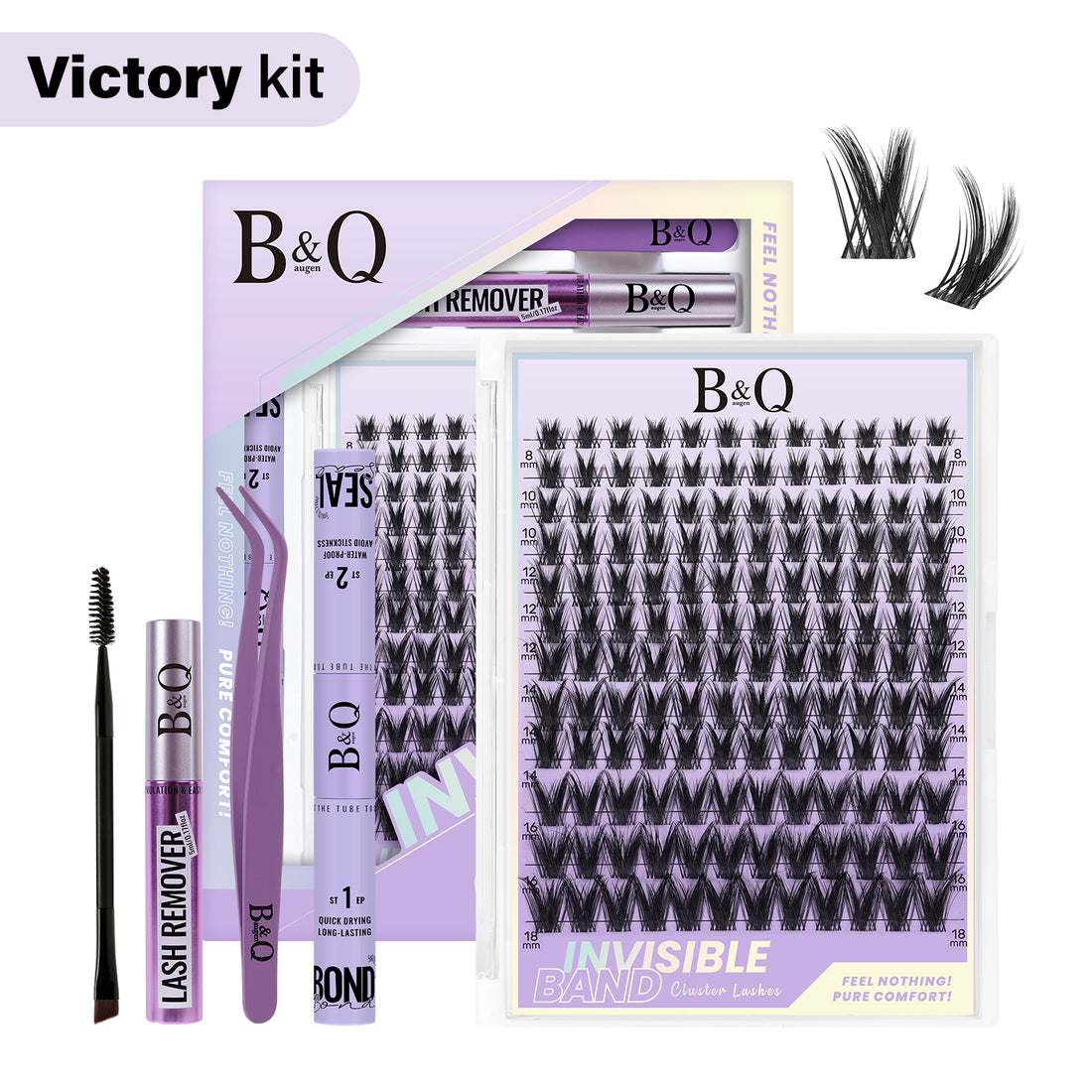Have you noticed your eyelashes thinning, shedding, or even disappearing in certain spots? Eyelash loss can feel frustrating and even alarming, especially when lashes are such an important part of how we look and how we protect our eyes.
1. Rubbing Your Eyes Too Much
We all rub our eyes sometimes — when we’re tired, when they itch, or when we’re trying to remove makeup. But frequent or aggressive rubbing can weaken the delicate hair follicles around the eyelid. Over time, this can lead to eyelashes falling out faster than they grow back.
Also, rubbing your eyes increases the risk of irritation and even eye infections, which can further affect lash growth.
How to prevent this:
-
Avoid rubbing your eyes whenever possible.
-
Use gentle eye drops if your eyes feel dry or itchy.
-
When removing makeup, use a soft cotton pad and a gentle remover. Press, hold, and wipe — don’t scrub.
2. Using Harsh Eye Products
Some beauty products, especially waterproof mascara, cheap eyelash glue, or low-quality removers, can damage your lashes. These formulas often contain alcohol or drying chemicals that weaken the lash shaft.
False lashes can also be a problem if you use them too often or remove them too roughly. Pulling off strip lashes or extensions can take your natural lashes with them.
What to do instead:
-
Choose high-quality, gentle eye makeup products.
-
Look for glue that is formaldehyde-free and designed for sensitive skin.
-
Use oil-based or dual-phase makeup removers to take off mascara and glue gently.
-
Limit how often you wear heavy false lashes or extensions.
3. Allergic Reactions
Some people are sensitive to ingredients in cosmetics, lash serums, or skincare products. If your eyelids become red, itchy, swollen, or start flaking after applying a product, it could be an allergic reaction. Chronic irritation at the lash line can weaken follicles and lead to lash loss.
Tip:
-
If you notice symptoms, stop using new products one at a time to find the source.
-
Choose fragrance-free and hypoallergenic makeup whenever possible.
-
Patch-test any new products on your inner wrist or behind your ear before applying near your eyes.
4. Stress and Lack of Sleep
Yes — stress can cause your lashes to fall out. When your body is under pressure or not getting enough rest, it may push more hair into the “shedding” phase of its natural cycle (this condition is called telogen effluvium). The same applies to your eyelashes.
Stress can also cause people to rub their eyes more or pick at their lashes, which worsens the problem.
What you can do:
-
Get 7–8 hours of sleep per night.
-
Find healthy ways to manage stress — even short daily walks can help.
-
Try to limit caffeine and alcohol, which can affect your sleep quality.
🔔 Complete Guide: Can Stress Cause Lash Loss? The Link Between Stress and Eyelash Shedding
5. Medical Conditions
Some eyelash loss is linked to medical issues. If you notice sudden or severe lash loss, or if you have other symptoms like fatigue or hair thinning, there may be a health condition behind it. Here are a few to be aware of:
-
Blepharitis: This is inflammation of the eyelids, often caused by bacteria or oil buildup. It can block follicles and lead to lash loss.
-
Alopecia areata: An autoimmune condition that causes the body to attack its own hair follicles. It may result in patchy lash or brow loss.
-
Thyroid disorders: Both hypothyroidism and hyperthyroidism can interfere with hair growth and cause thinning lashes.
If you suspect a medical issue, it’s best to talk to a dermatologist or general doctor. Treating the root cause can help lashes grow back.
6. Aging
As we get older, hair growth slows down. This includes the small, delicate hairs that make up our lashes. The lashes may grow thinner, fall out more easily, or take longer to grow back. Your skin also produces less oil with age, which can dry out hair follicles and cause lashes to become brittle.
What helps:
-
Use a gentle eye cream to keep the skin hydrated.
-
Apply a lash serum or nourishing oil (like castor oil) to support healthier growth.
-
Avoid eyelash curlers or heavy makeup that may break fragile lashes.
7. Poor Nutrition
Your body needs the right nutrients to grow healthy hair — including your eyelashes. If you’re low in biotin, iron, vitamin D, or zinc, it can cause lashes to fall out or grow in weak.
Crash diets, extreme calorie restrictions, or poor eating habits can all lead to nutrient deficiencies and slower hair growth.
What to eat:
-
Lean proteins (chicken, fish, eggs)
-
Leafy greens and colorful vegetables
-
Whole grains and nuts
-
Omega-3 fats (like salmon or chia seeds)
If you suspect your diet might be the issue, talk to your doctor or a nutritionist about supplements.
When Should You Be Concerned?
Losing a few lashes per day is normal. Most people lose 1 to 5 lashes daily as part of the natural growth cycle. But if you notice:
-
Sudden or patchy lash loss
-
Bald spots on your eyelid
-
Pain, swelling, or red eyelids
-
Lashes not growing back after several months
…it’s time to consult a healthcare provider. A dermatologist or eye specialist can help rule out serious conditions and suggest treatments.
How Long Do Eyelashes Take to Grow Back?
Eyelashes usually grow back within 6 to 8 weeks, though for some people it can take up to 3 months. The growth cycle has three stages:
-
Anagen (growth phase)
-
Catagen (transition phase)
-
Telogen (resting/shedding phase)
If the lash follicle is still healthy, new lashes will grow back. However, repeated damage (like frequent pulling or infections) can slow or stop growth over time.
How to Care for Your Lashes Every Day
Here are some simple ways to protect and support your lashes:
-
Be gentle: Avoid rubbing, pulling, or scrubbing the lash area.
-
Use lash-friendly products: Choose makeup that is easy to remove and made for sensitive skin.
-
Clean your lids: Use a gentle cleanser or micellar water to wipe the lash line and prevent buildup.
-
Try lash serums: Look for serums with peptides, biotin, or panthenol to strengthen follicles.
-
Avoid extensions if lashes are weak: Give your natural lashes time to rest and recover.
Final Thoughts
Eyelash loss is usually not permanent — but it’s important to know what’s behind it. Whether it’s stress, makeup, diet, or a medical issue, most causes of lash shedding are treatable or reversible with the right care.
Take time to care for your lashes just like you would your skin or hair. With patience and good habits, you’ll likely see your lashes grow back fuller and stronger.
References
-
Cleveland Clinic – Why Are My Eyelashes Falling Out?
https://health.clevelandclinic.org/why-are-my-eyelashes-falling-out -
Healthline – Eyelash Loss: Causes, Treatment, and Prevention
https://www.healthline.com/health/eyelash-loss -
American Academy of Ophthalmology – Why You Shouldn’t Rub Your Eyes
https://www.aao.org/eye-health/tips-prevention/why-you-shouldnt-rub-your-eyes -
WebMD – Nutrition and Hair Loss
https://www.webmd.com/skin-problems-and-treatments/hair-loss/ss/slideshow-hair-loss-overview -
Mayo Clinic – Aging and Hair Loss
https://www.mayoclinic.org/healthy-lifestyle/healthy-aging/in-depth/hair-loss/art-20047075







